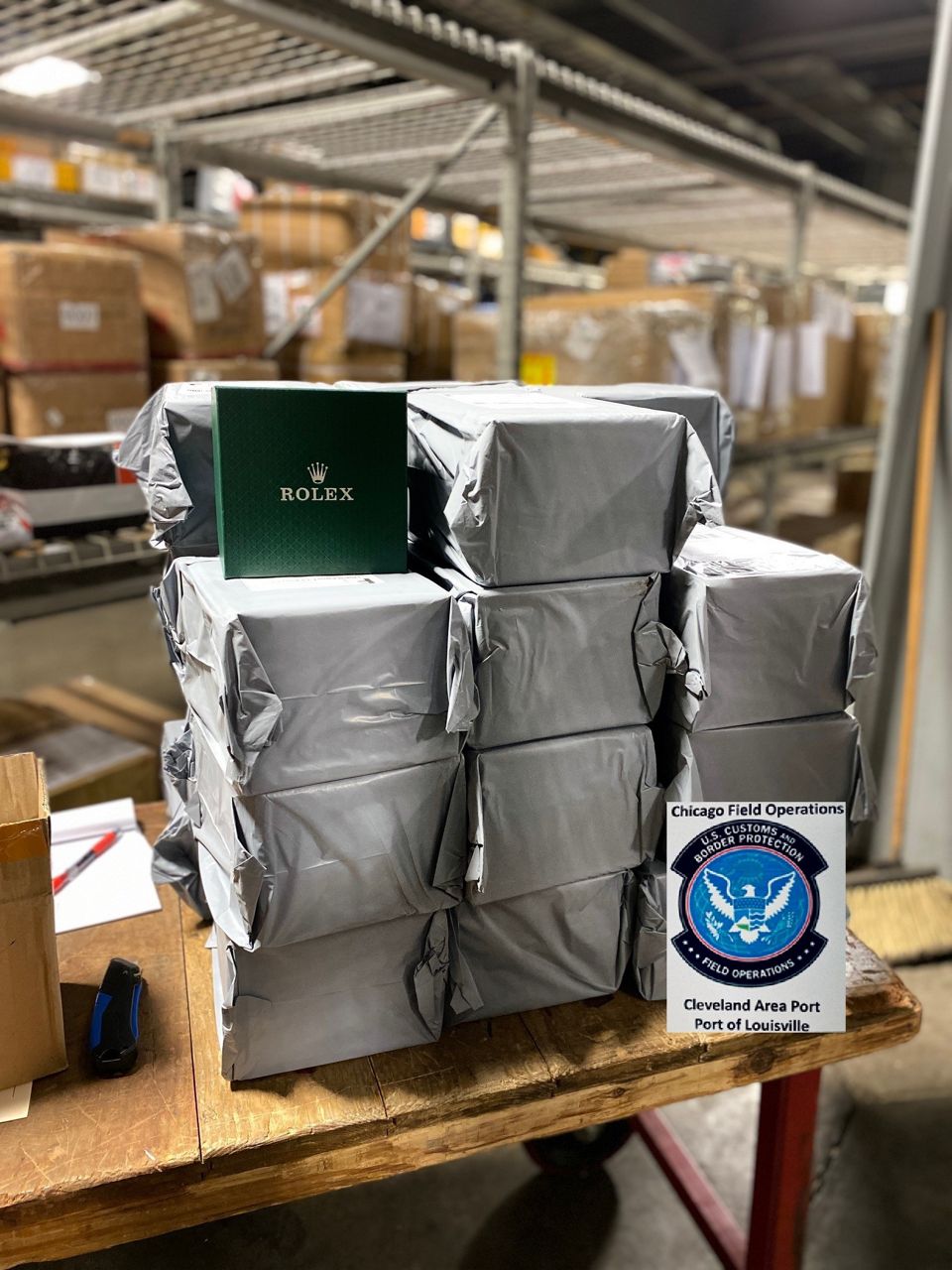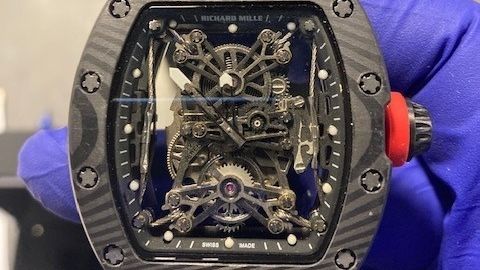LOUISVILLE, Ky. — U.S. Customs and Border Protection officers in Louisville announced in a news release on Wednesday that they have seized more than 3,200 counterfeit designer watches since October 1.
The 3,229 counterfeit watches bore the names of Rolex, Audemars Piguet, Cartier, Gucci and the ever-popular Richard Mille trademarked logos.

The shipments were mostly from China and were destined for addresses all over the U.S. Had the watches been real, the manufacturer’s retail price would have been over $81.5 million.
“Legitimate cross-border trade powers the U.S. economy,” said LaFonda D. Sutton-Burke, the director of field operations in the Chicago field office. “As trade grows at unprecedented rates, our officers are working hard to identify threats and shut down illicit suppliers.”
E-commerce sales have contributed to large volumes of low-value, small packages being imported into the United States. Over 90 percent of all counterfeit seizures occur in the international mail and express environments, which are channels that small, e-commerce packages destined for U.S. addresses travel through.
Many of these shipments contain counterfeit goods that pose the same health, safety and economic security risks as large, containerized shipments.
Experts say shopping from reputable sources online is key.
“Consumers should be aware that if a known high-value brand is being offered for an unusually low price, it could very well be fake. CBP encourages the use of reputable vendors for your valuable purchases,” said Thomas Mahn, the port director in Louisville. “Our officers are dedicated to preventing counterfeiters from defrauding consumers and legitimate businesses.”
Sold in underground outlets and on third party e-commerce websites, counterfeit commodities fund smugglers and members of organized crime. Consumers often believe they are buying a genuine product, but soon realize the item is substandard and potentially dangerous.
CBP conducts operations at ports of entry throughout the United States, and regularly screens arriving international passengers and cargo for narcotics, weapons and other restricted or prohibited products.
CBP Trade protects the intellectual property rights of American businesses through an aggressive Intellectual Property Rights enforcement program, safeguarding them from unfair competition and use for malicious intent while upholding American innovation and ingenuity. Suspected violations can be reported to CBP here.
To learn more about CBP’s e-commerce strategy, visit CBP’s e-commerce website.



